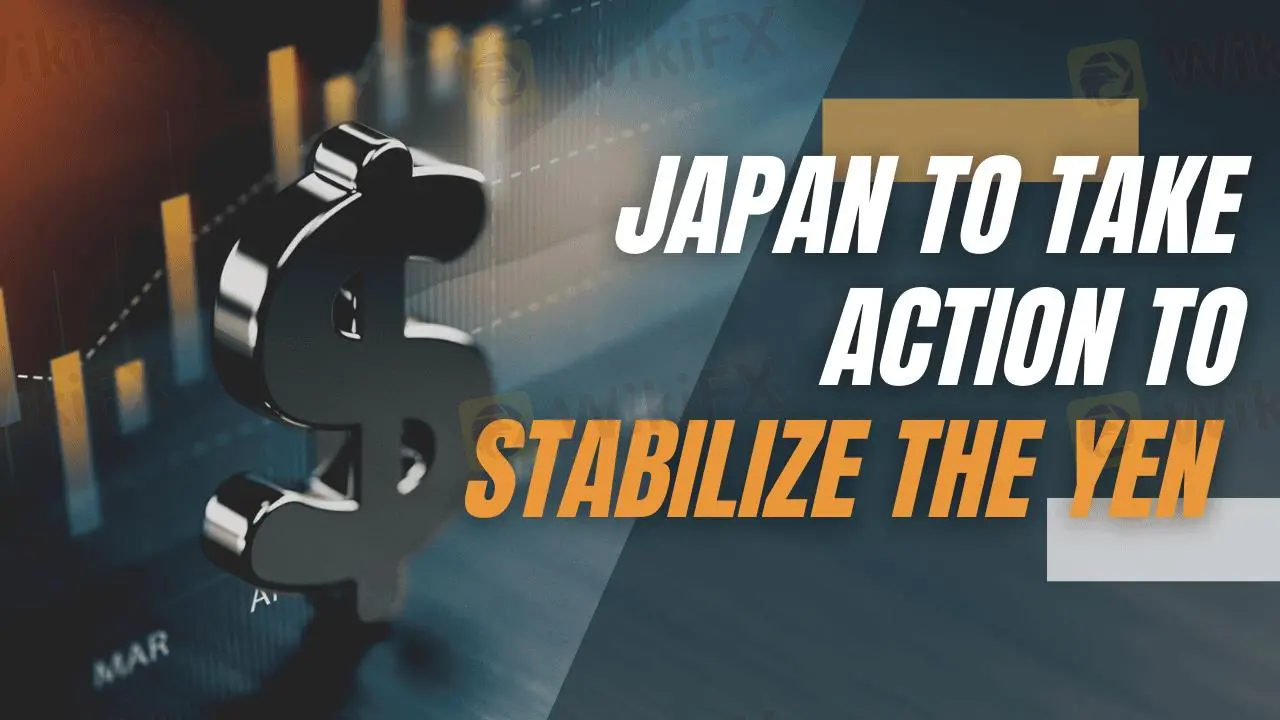简体中文
繁體中文
English
Pусский
日本語
ภาษาไทย
Tiếng Việt
Bahasa Indonesia
Español
हिन्दी
Filippiiniläinen
Français
Deutsch
Português
Türkçe
한국어
العربية
Japan to Take Action to Stabilize the Yen
Abstract:Japan faces yen depreciation due to interest rate gaps; officials plan measures to stabilize forex market volatility.

Since early 2022, the Japanese yen has depreciated by over 20% against the US dollar, primarily due to the interest rate differential between Japan and the US. Despite multiple interventions by the Japanese government in September and October 2022, as well as in April and May 2024, the yen has continued to weaken. On July 3, 2024, the USD/JPY exchange rate hit a 38-year low, with 1 USD equaling 161.96 JPY.
The persistent easing of monetary policy by the Bank of Japan (BOJ), in contrast to rate hikes by major central banks such as the Federal Reserve and the European Central Bank, has widened the interest rate gap between Japan, the US, and Europe. This divergence has reduced the yen‘s appeal to investors, leading to sustained selling pressure in the forex market. For Japan’s energy-dependent economy, the yens depreciation is particularly concerning, as it further inflates the cost of importing oil, natural gas, and other raw materials, exacerbating economic pressures on households and businesses.

To address the yen‘s volatility, Japanese officials have hinted at potential measures to stabilize the exchange rate. In a routine press conference, when asked about the yen’s continued weakness, Japanese Finance Minister Shunichi Kato stated, “Our stance has not changed.”
Last Friday, Kato noted the recent one-sided and sharp movements in the foreign exchange (FX) market. He further emphasized that appropriate measures would be taken to prevent excessive forex volatility.
Disclaimer:
The views in this article only represent the author's personal views, and do not constitute investment advice on this platform. This platform does not guarantee the accuracy, completeness and timeliness of the information in the article, and will not be liable for any loss caused by the use of or reliance on the information in the article.
Read more

The Impact of Interest Rate Decisions on the Forex Market
Interest rate changes determine currency attractiveness, influencing capital flows and exchange rate trends. Understanding this mechanism helps investors navigate the forex market effectively.

How a Housewife Lost RM288,235 in a Facebook Investment Scam
A 47-year-old housewife in Malaysia recently fell victim to an online investment scam, losing a substantial sum of RM288,235 after engaging with a fraudulent scheme advertised on Facebook.

Interactive Brokers Launches Forecast Contracts in Canada for Market Predictions
Interactive Brokers introduces Forecast Contracts in Canada, enabling investors to trade on economic, political, and climate outcomes. Manage risk with ease.

Bank Negara Malaysia Flags 12 New Companies for Unauthorised Activity
Bank Negara Malaysia (BNM) has updated its Financial Consumer Alert List (FCA List) by adding 12 more entities, reinforcing its efforts to warn the public against unregulated financial schemes. Check if your broker made the list!
WikiFX Broker
Latest News
Interactive Brokers Launches Forecast Contracts in Canada for Market Predictions
Authorities Alert: MAS Impersonation Scam Hits Singapore
INFINOX Partners with Acelerador Racing for Porsche Cup Brazil 2025
The Impact of Interest Rate Decisions on the Forex Market
Billboard Warns of Crypto Scams Using Its Name – Stay Alert!
STARTRADER Spreads Kindness Through Ramadan Campaign
Rising WhatsApp Scams Highlight Need for Stronger User Protections
A Trader’s Worst Mistake: Overlooking Broker Reviews Could Cost You Everything
How a Housewife Lost RM288,235 in a Facebook Investment Scam
The Daily Habits of a Profitable Trader
Currency Calculator







